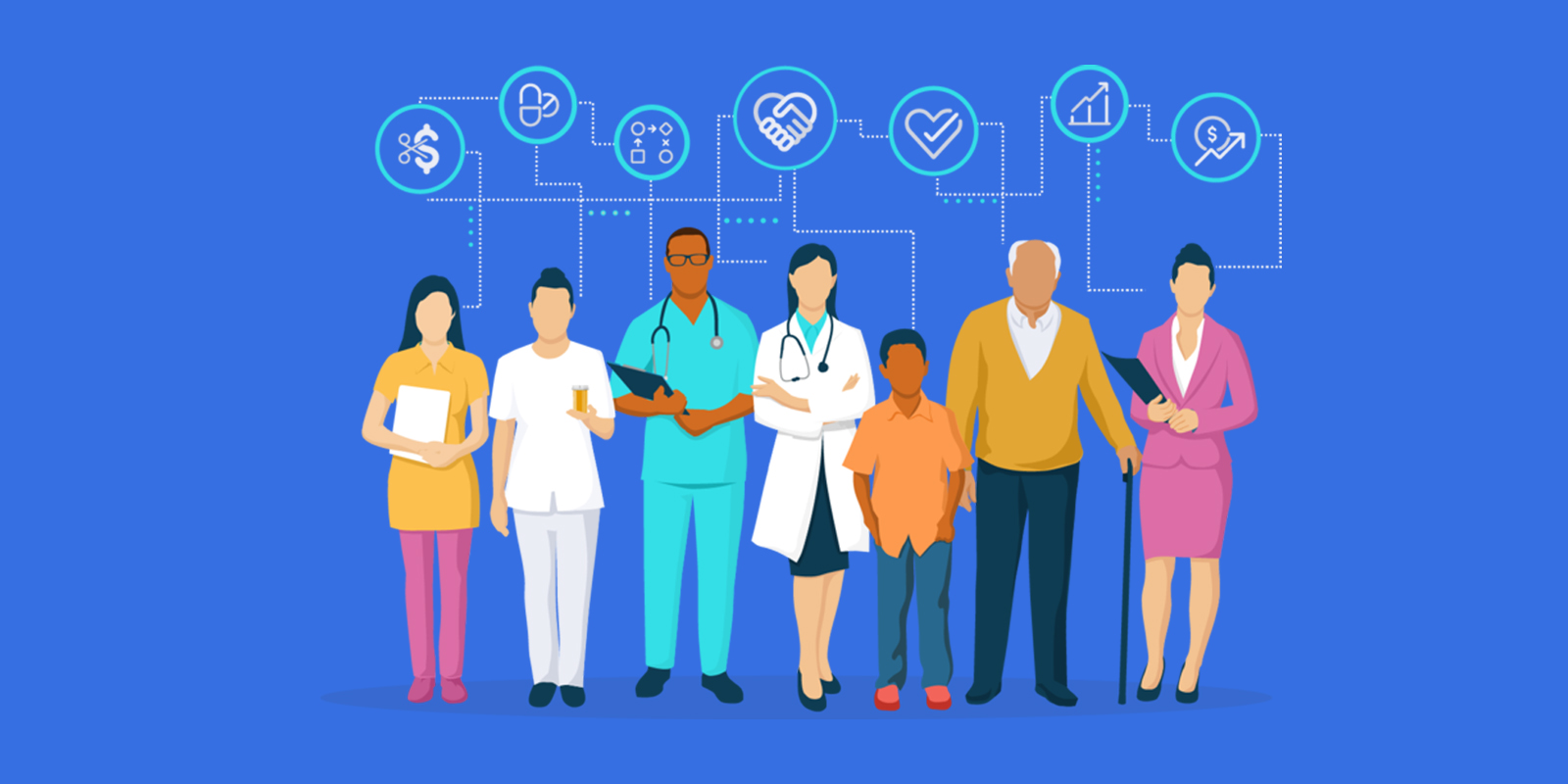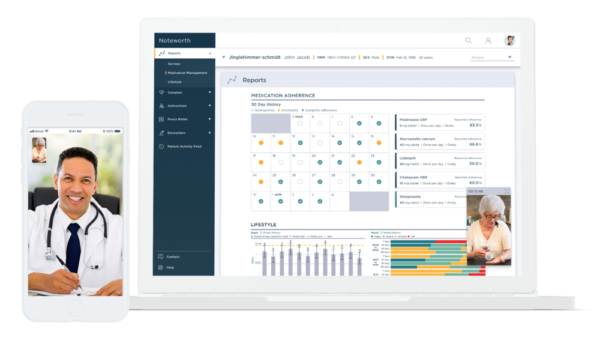Noteworth Enables End-to-End, Coordinated Care

COVID-19 treatment scenarios are accelerating adoption of technologies that connect providers, patients and caregivers virtually without requiring physical office visits. One company well positioned to take advantage of this trend is NJ-based medtech startup, Noteworth.
The Noteworth platform is designed to remove the barriers to tech enabled care, using intuitive workflows for clinicians and a patient-friendly mobile app that promotes connected health. We recently sat down with Noteworth CEO and Founder Justin Williams to learn more about the company and hear his vision for the future of healthcare.
What are the biggest challenges that you see the healthcare industry facing today?
The COVID-19 pandemic has forced healthcare to acknowledge issues such as inequities in care and the distribution of care. We need to deliver care to more people, without the need for transportation or in-person visits. At Noteworth, we have enabled screening, video visit, and symptom tracking capabilities to enable patients to receive care and follow-up treatment from home. We’ve also rolled out exposure risk assessments for healthcare workers to help physician practices and integrated delivery networks manage staff both clinically and administratively from the same dashboard.

Looking past our response to COVID-19, in the post-Affordable Care Act environment, and with the resurfacing of value-based care and a shift to preventive medicine, care delivery models need to change. In most cases, you see a patient for 12 minutes every six months. How do you drive behavioral change, especially for managing chronic conditions? You can’t. With two data points per year, you can only draw a straight line. To measure progress and make recommendations, you need the dots in between so you can draw a curve.
There are also structural challenges. Payment models are shifting, but healthcare is a business, and revenues are softening. If you make preventive care like an oil change, with one nurse and one patient at a time, it doesn’t scale. But if you can have six nurses work with a panel of 50,000 patients, that can scale, and the economics make sense.
What is Noteworth’s core mission?
We are on a mission to improve the way patient care is delivered. We want organizations to start off on a path to achieve value-based care without having to change everything that a doctor does every day.
We built an elegant product that emphasizes clinical workflow but hides the consumerization from clinical teams. That way, doctors can remain focused on their objectives – identifying symptoms and recommending treatments that achieve a specific outcome – while patients are able to focus on their health in a holistic way. When we go into an organization, we can stand up the platform in 72 hours, and then once it’s in place we align how Noteworth is used with the workflows that are in place.
Why is it so important for patients to participate in the care process?
As we built our product, we spent a lot of time shadowing physicians. One thing we noticed is that a lot of what healthcare considers to be patient participation is just handing someone a flier and sending them on their way. Patients told us all the time, “I just want to know what I’m supposed to do.”
If the path to being healthy again is hidden, and you want patients to find it, you need to give them the tools to amplify their effort, drive their participation, and find what they need. We take tried-and-true digital medicine – such as medication adherence, telehealth, and patient-reported outcomes – and applied it to all outpatient scenarios, whether it’s diabetes or mental health or post-partum care.
How do clinical teams benefit from centralized care management capabilities?
It’s like running a team in any other strategic operation. It’s data flow and prioritization. If we’re going to give patients a tool to measure their blood sugar, or log when they take medications, then we need to be able to look at that data and tell the care team which patients need attention. Noteworth will flag emergent situations and bring them up to staff so interventions don’t have to wait. One client made 27 interventions in COPD patients in six months that would have otherwise resulted in a hospitalization.
This also lets nurses and care coordinators work to the top of their license. Typically, what they do is no different than working in a call center – get a list of patients, make a lot of phone calls, and hope to reach one patient out of 50. We take that away. Care coordinators spend much less time on the phone and only engage the patients who need help.
How do you see Noteworth impacting the future of care delivery and treatment?
The future of care, in a word, is constant. We’re focused on constant care, not episodic care – care without gaps, and care driven by data.
Healthcare IT Leaders is a Noteworth services partner. To learn more or see a demo, contact us.